

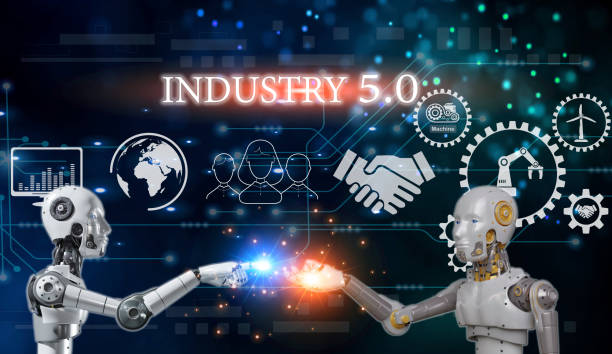
Imagine a world where machines no longer just follow commands, but anticipate needs and maximize efficiency like never before. That's not a distant future dream—it’s happening today as innovative technologies are reshaping industrial machinery’s role in manufacturing.
Why is this transformation critical? In an era of unprecedented competition and sustainability challenges, companies that embrace cutting-edge innovations are outperforming those that resist change. The potential for growth and optimization has never been higher—missing out could mean being left behind.
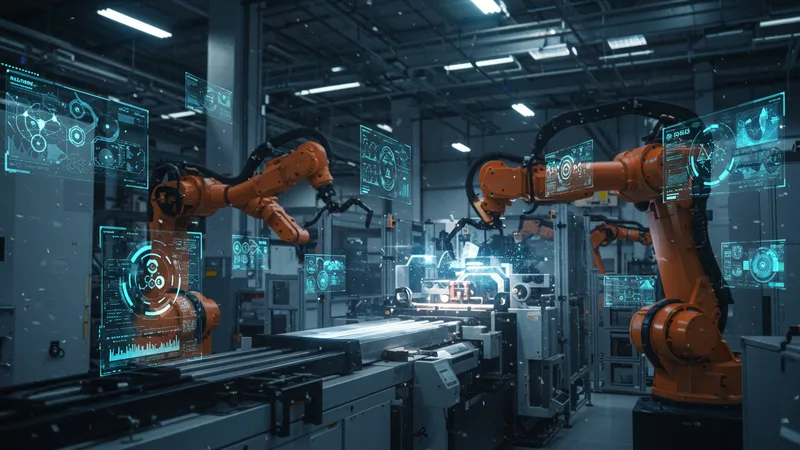
What if you knew factories powered by artificial intelligence are drastically cutting waste and elevating precision? It's a reality, yet many still underestimate the shift’s magnitude. But that’s not even the wildest part…
Revolutionary technologies like digital twins are allowing operators to simulate processes in real time, predicting outcomes and troubleshooting issues before they occur. But here's the twist—industry experts are divided on its ultimate impact… But that’s not even the wildest part…
The next chapters reveal hidden truths behind these technologies that shocked even the experts. Are you ready to find out what happens next?
AI isn’t just optimizing; it’s transforming. Leveraging machine learning for predictive maintenance, companies are slashing downtime by nearly 50%. But what truly sets AI apart is its ability to adapt over time, learning from data to improve processes autonomously. But there’s one more twist…

Some argue this evolution doesn’t stop at efficiency. Imagine AI-driven quality control that surpasses human capabilities, detecting flaws invisible to the naked eye, thus raising the bar on production standards. What you read next might change how you see this forever.
AI facilitates enhanced worker safety by predicting hazardous conditions before they manifest, leading to a 30% reduction in workplace accidents. But it’s not just safety; there’s more to AI's impact that keeps surprising…
Yet, challenges persist, as these technologies require massive amounts of quality data. The question remains—will your company harness AI's full potential or be overwhelmed by its complexity? What you read next might change how you see this forever.
Would you believe robots are taking on roles once thought impossible? Leading factories are employing autonomous robots capable of learning new tasks in hours, not weeks. This accelerated learning curve is revolutionizing production timelines. But there’s a catch…
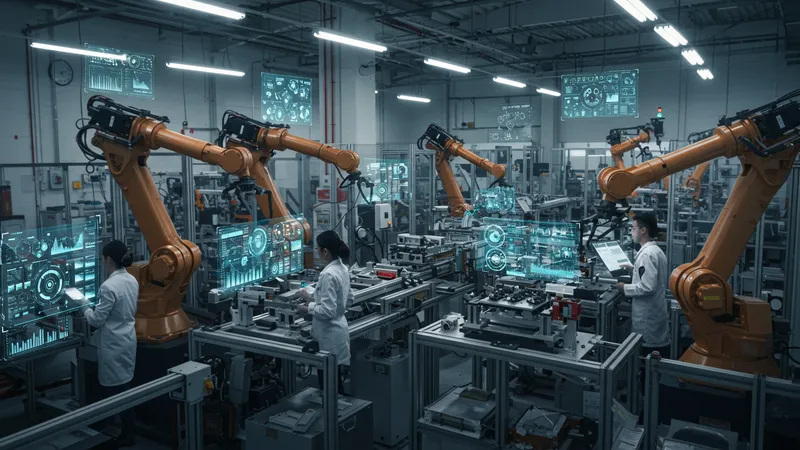
Robotics also introduces ethical considerations, such as workforce displacement. The debate isn’t just about job loss—it’s about transitioning to roles unimaginable a decade ago. What you read next might change how you see this forever.
Consider the rise of collaborative robots (cobots) working alongside humans, enhancing abilities and reducing ergonomic strain. This synergy not only increases productivity but also, surprisingly, job satisfaction. But there’s an urgent challenge manufacturers are facing…
Robots need training—a new skill set for human operators. Those embracing this dynamic are gaining a competitive edge, but will it be universally accepted, or are barriers too great? But there’s one more twist…
IoT is the silent giant connecting machinery, unlocking real-time insights that once seemed like science fiction. Integrated systems monitor everything from temperature to usage, enabling preemptive adjustments that avoid costly breakdowns. But there’s an unprecedented side to consider…
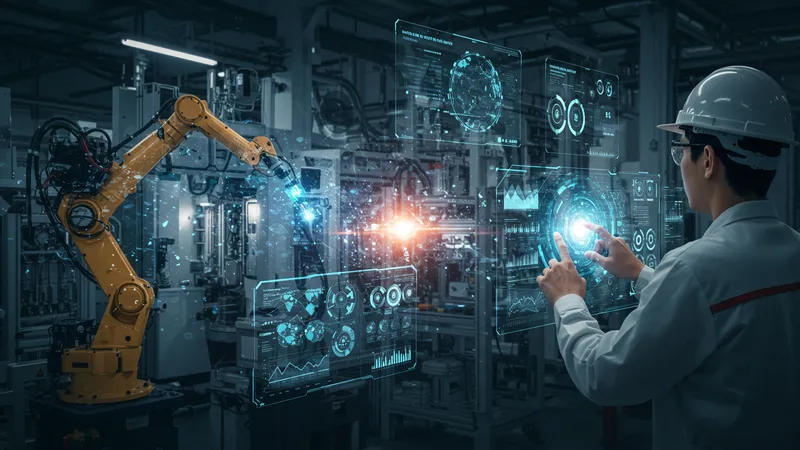
The IoT-driven factory doesn’t just speak; it listens. With sensors and data collection, it anticipates needs, ushering in a new era of customization and responsiveness. But there’s a deeper intrigue in the data itself…
Security becomes paramount with the increased connectivity IoT offers. Vulnerabilities in networks open the door to cyber threats—a challenge manufacturers must confront head-on. But despite risks, the rewards are significant and hard to ignore…
It's not just about machinery talking; IoT fosters a collaborative ecosystem where all systems communicate, leading to smarter, more sustainable practices. But what does this mean for the future of manufacturing? The answer might shock you…
Digital twins enable virtual simulations of physical systems, providing invaluable insights without real-world risks. Manufacturers see up to a 30% enhancement in efficiency with predictive modeling. But this technology’s implications extend beyond operational gains…

Imagine testing new products entirely in a digital environment. The speed, safety, and economy of this method are disrupting traditional R&D cycles. But there's an astounding application that's even more transformative…
The power extends to training programs, where new employees familiarize themselves with machinery operations virtually before setting foot in a factory. This revolutionizes skill development, but the implications are broader still…
Digital twins could one day serve as a testbed for policy and ethical scenarios, shaping manufacturing practices in profound ways. But can this technology keep pace with rapid industry demands? The revelations continue…
Sustainability isn't optional; it’s a necessity. Innovative machinery today boasts energy efficiency that’s reducing carbon footprints dramatically. But what seems like a green initiative is also becoming a competitive advantage…
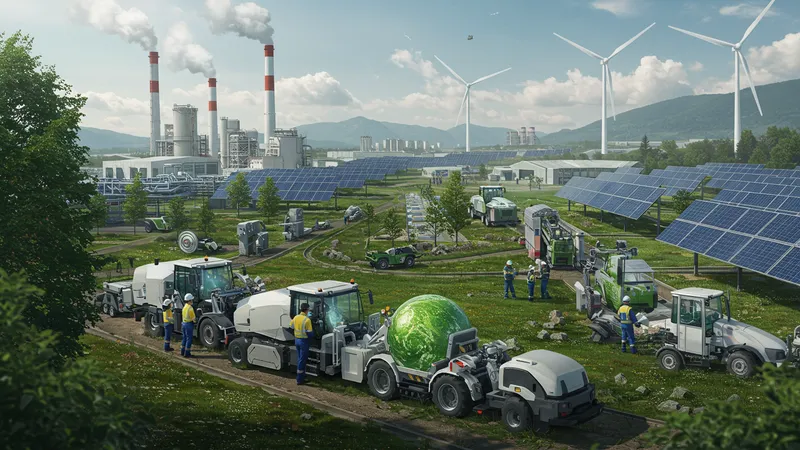
Green technologies are not only saving the planet—they’re saving money. With incentives and reduced energy costs, companies experience up to a 20% savings on operational expenses. But that's only scratching the surface…
Consider waste reduction practices that repurpose byproducts into valuable resources. This closed-loop approach is not only eco-friendly but also a surprise source of additional revenue. But is this the ultimate solution or just part of a bigger shift?…
Challenges remain, like initial investment hurdles. Yet, those investing in sustainability today are finding themselves way ahead of regulatory trends, reaping rewards beyond financial gains. But the debate on its feasibility persists…
What’s the key driving the unparalleled success of Industry 4.0? Integration. Systems that once operated in silos now harmonize through intelligent platforms, creating a seamless industrial ecosystem. But integration’s story has a surprising twist…
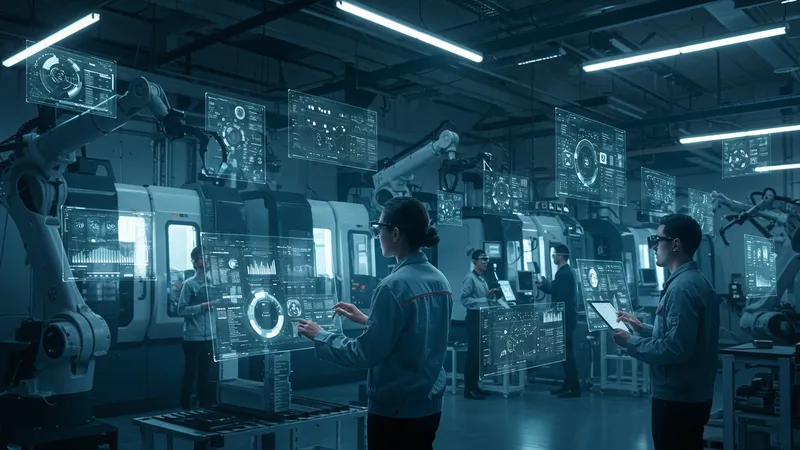
Real-time tracking enables an unprecedented level of transparency, allowing managers to optimize operations dynamically. Yet, this transparency imposes a new burden—data overload. But are companies ready for it?…
Collaboration tools within Industry 4.0 facilitate a global dialogue among experts, fostering innovation through shared intelligence. But what about security and privacy concerns? The answers might surprise you…
The true prowess of Industry 4.0 lies in its flexibility, accommodating continuous shifts in market demands. However, scaling this flexibility isn't devoid of challenges, especially for smaller firms. But there’s another story evolving here…
3D printing is changing the rules of manufacturing. Not bound by traditional methods, it can produce parts rapidly and customize them extensively. But can it truly revolutionize beyond early prototypes? The industry insiders think so…
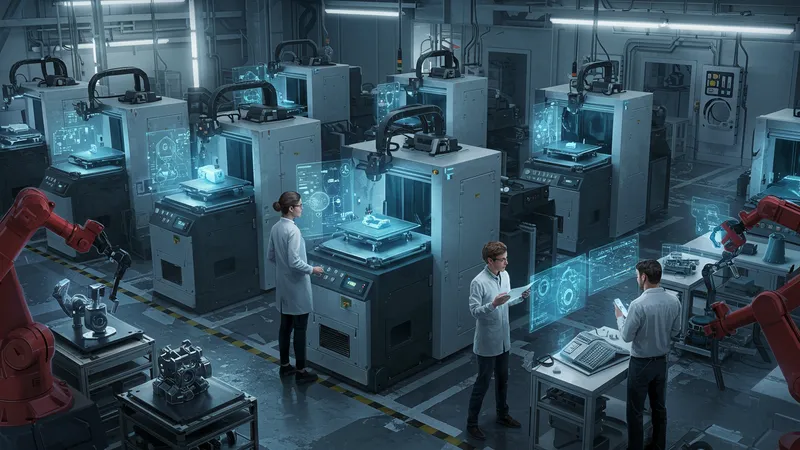
Unexpectedly, additive manufacturing supports sustainable practices, reducing material waste by a striking 70% compared to conventional methods. But challenges in scaling production persist, begging the question of viability…
Customization in production is where 3D printing shines, delivering unique parts on demand, from aerospace to automotive industries. Yet, the hidden costs still baffle many. What are they, and how can they be mitigated?…
The conversion from prototyping to direct manufacturing is accelerating, but it’s not without technological and regulatory hurdles that must be addressed. The future of production might hinge on overcoming these very barriers…
The rhetoric around robots taking jobs misses an essential aspect—collaboration. When humans and machines unite, they unlock unprecedented possibilities. However, the transition is intricate and challenges persist…
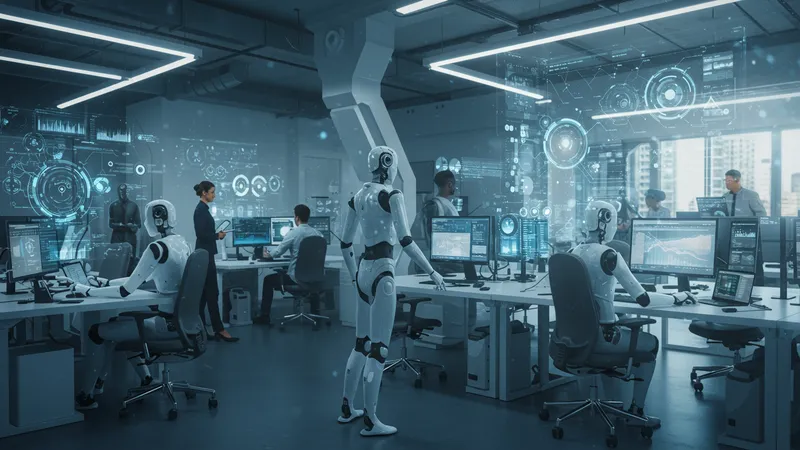
Firms leveraging this synergy are seeing a 30% increase in productivity. While workers shift to higher-value roles, reskilling becomes paramount. But can education systems keep up with this rapid change?…
As machines handle repetitive tasks, human creativity and strategic decision-making gain prominence. But a pressing question remains—how prepared are leaders to manage this shift?…
A cultural transformation is afoot, demanding forward-thinking approaches to leadership and workforce development. The ensuing adjustments could redefine organizational structures in ways unforeseen…
In today’s interconnected world, manufacturing is no longer confined by geographic borders. Global supply chains harnessed by technological advances facilitate unprecedented reach. But this comes with new intricacies…
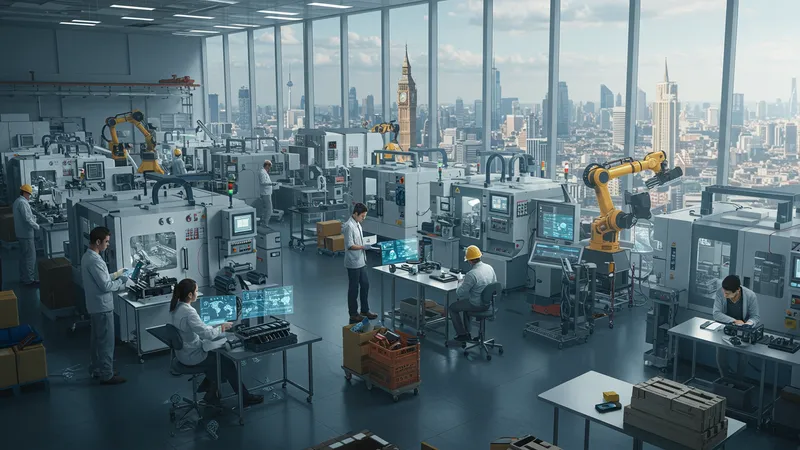
Manufacturers now employ digital communication tools to manage logistics worldwide with precision. Yet, geopolitical tensions pose risk to these interdependencies. But how prepared are industries to adapt?…
Emerging markets are seeing unprecedented growth through technology adoption, reshaping global manufacturing dynamics. But the infrastructure gaps continue to challenge equality in progress…
As countries vie for technological supremacy, the impact on global trade is profound and still unfurling. The implications for international collaboration and competition are far-reaching…
The digital convergence in manufacturing brings unparalleled efficiency but also exposes industries to significant cyber threats. Safeguarding these systems requires cutting-edge security measures. But surprising pitfalls await…
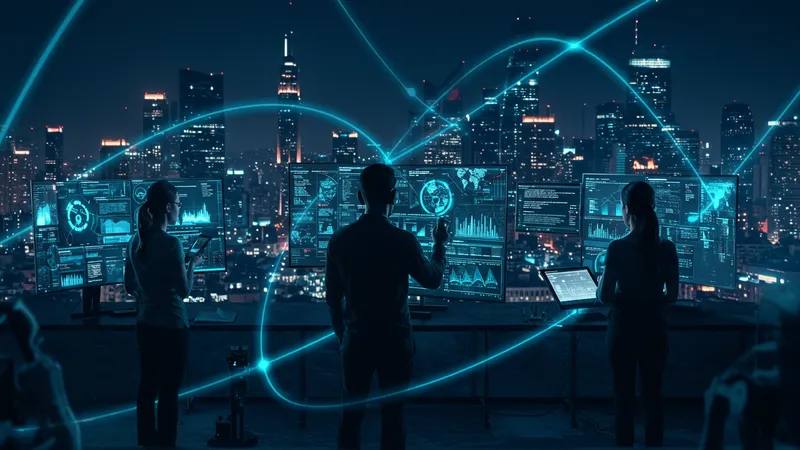
Even as companies strengthen defenses, the complexity of cyber attacks evolves. The rise of AI in both offensive and defensive tactics is creating an unprecedented cyber arms race…
Collaborations between tech firms and industries boost defenses, yet the rapid nature of threats demands even greater agility. But are current security technologies truly up to the task?…
The ramifications of a security breach extend beyond financial loss to reputational damage, making it imperative to innovate constantly. The stakes in this cybersecurity landscape are unlike any before…
As the landscape of manufacturing transforms at such a dizzying pace, the potential for innovation is staggering. The real question is: will your business ride the wave of change or be swept away by it? The choice lies in the technologies you embrace today.
Don’t miss the opportunity to lead the charge in this new industrial era. Share this with colleagues, bookmark it for later, and take proactive steps to be at the forefront of this revolution. The future is here, and it’s more extraordinary than we ever imagined.